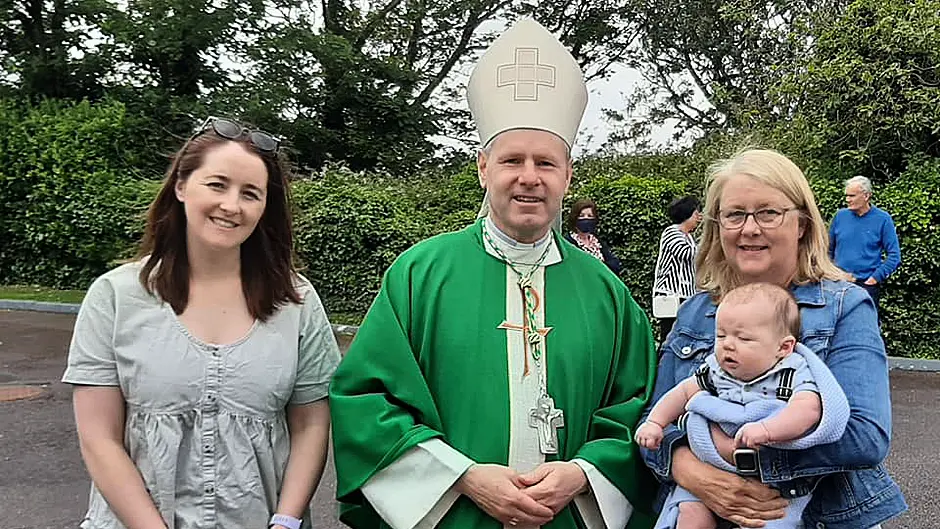The decision to have priests sharing duties across parishes, with some highly populated areas not even having a resident parish priest anymore, is one of the most radical changes to affect the church in West Cork in many decades. Dylan Mangan takes a closer look at the changes
THE radical shake-up announced last week by Fintan Gavin, the Catholic Bishop of Cork and Ross, in a bid to tackle declining numbers and increased workload for his clergy, was greeted with mixed responses.
While some Catholics believed the changes were inevitable, others felt they will leave a lot of parishes in danger of accelerating the ongoing decline in attendances at Sunday services.
The announcement was made by Bishop Fintan Gavin in his pastoral letter Putting Out into Deep Waters, in which he said that the crisis in numbers ‘brings an opportunity for new possibilities.’
The letter detailed the new plan for parishes and explained why the changes were being made now.
Twelve priests are set to either retire or return to their religious orders in the Cork and Ross diocese this year, with four of those based in West Cork.
As reported in The Southern Star last week, the changes mean that parishes like Murragh/Templemartin, Caheragh, Rossmore, Kilmichael and Aughadown, will no longer have a resident parish priest from September.
Their absence from the community will be strongly felt, according to Bishop Gavin. ‘While a small number will continue to help out as assistant priests, most have understandably decided they would prefer to retire fully from their appointments.’
The first phase of the plan will tackle this issue with the creation of 12 ‘families’ of parishes, where groups of priests will share their duties around several parishes in the hope that it will reduce their workloads.
‘There will be a team of priests, including a moderator and co-parish priests who are all equal and with the same rights and responsibilities as they had up to now,’ according to the bishop.
‘The co-PPs will work together across the parishes. This means that a priest will be appointed to the family of parishes and then reside in a particular parish but will minister across those parishes. The task of the moderators will be to co-ordinate the work of the families of parishes.’
It is also hoped that the new model will prompt an uptick in participation from local communities and encourage younger people to engage with the church in higher numbers.
‘Bringing parishes together as families of parishes presents an opportunity for much greater lay participation and shared leadership of parishes,’ said the bishop.
Bishop Gavin has met with hundreds of people other the course of the past year, with a gathering of all the priests in the diocese in Killarney last November marking the beginning of the end for the current status quo.
‘A system that served well in the past is crumbling,’ said Bishop Gavin.
‘In the past, the local community was also the faith community – where going to mass was the place where you met everyone, young and old. Many parents and grandparents now express sadness that their own children no longer practise their faith or seem interested in Church matters,’ he noted.
The challenges faced by the church in Ireland are replicated across Europe, with the number of regular churchgoers declining year-on-year.
According to the Central Statistics Office, in 2016, 78.3% of people in Ireland self-identified as Catholic compared to a peak of 94.1% in 1961. While that percentage remains relatively high, a 2018 study from the European Social Survey found that only 29% of people attend a religious service once a week.
These figures, along with the fact that so few priests are being ordained, is a real cause of concern for the church. ‘There is an awareness that our priests are getting older and fewer young men are choosing to become priests,’ the bishop said.
Current priests have been worried that their situation might get worse before it gets better, expressing their concerns at meetings where, according to Bishop Gavin, some spoke of ‘the imminent retirement of more priests in an already tight situation – which for priests might mean more work, ageing, poor health and a fear of burn-out, a fear of being further stretched.’
Going forward, the hope for the church is that these new ‘families of parishes’ will allay the congregations’ concerns, encouraging more participation within communities and eventually a healthier outlook for the future.
‘Initially, the team will consist of priests but I hope that lay leadership and more involvement will grow in time. It will involve parishes working much more closely together and sharing their gifts, talents and resources including their priests,’ said the bishop.
‘One of the other possibilities that the family of parishes allows is much greater co-ordination in the preparation and the celebration of sacraments. There can be shared preparation for sacraments such as baptism, first communion, confirmation and marriage and, in time, funeral teams can work together across each family of parishes.’
For Bishop Gavin, this model must be the start of a bigger change, as the Church prepares for more challenges down the line. ‘These are just first steps, exactly how they develop and emerge will depend on us,’ he said.
‘We have a lot of work to do together to make these changes. But if we are not pro-active, we will be, in a short space of time, left with no choice. We have to embrace the opportunities while we still can.’








